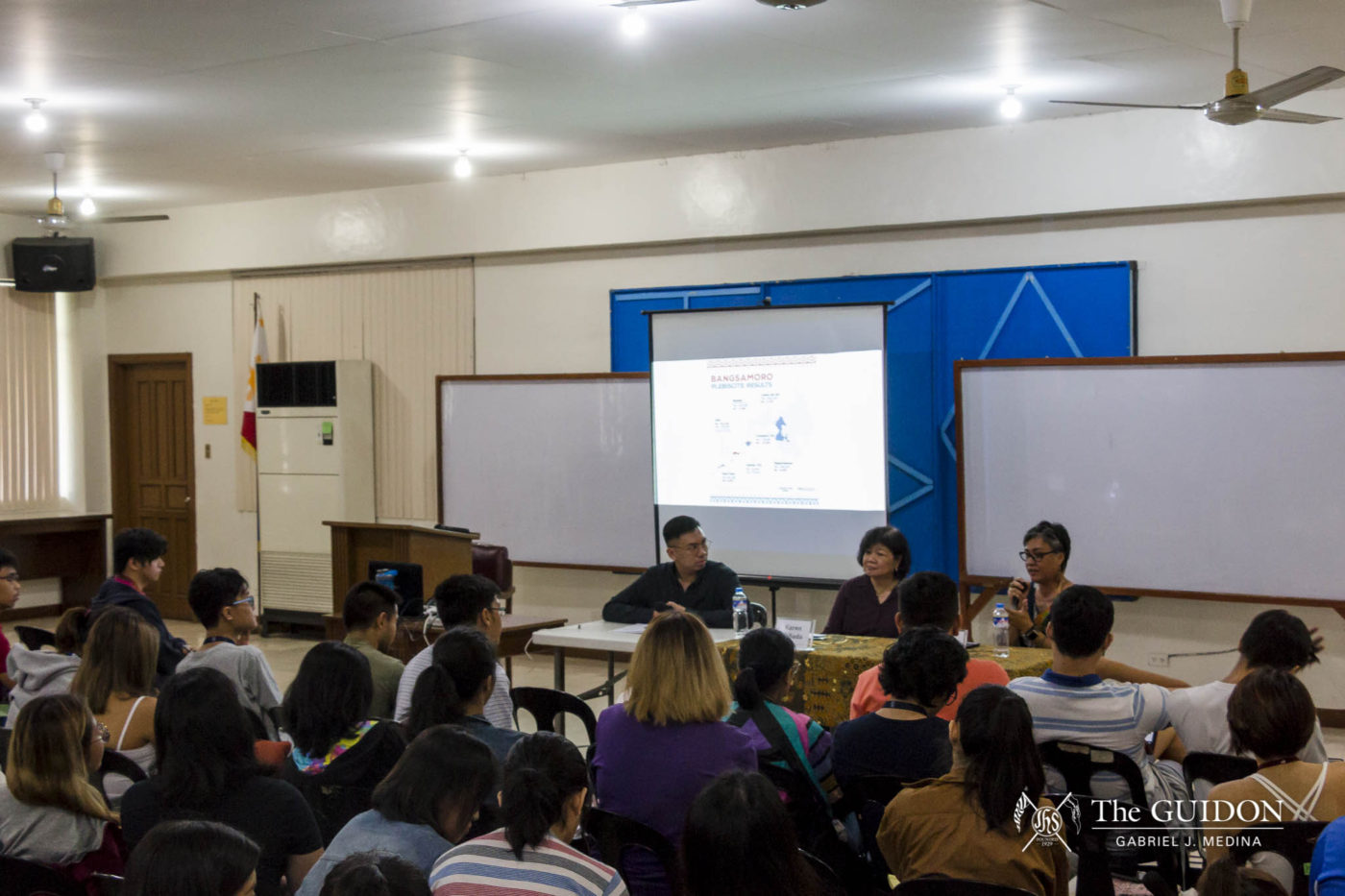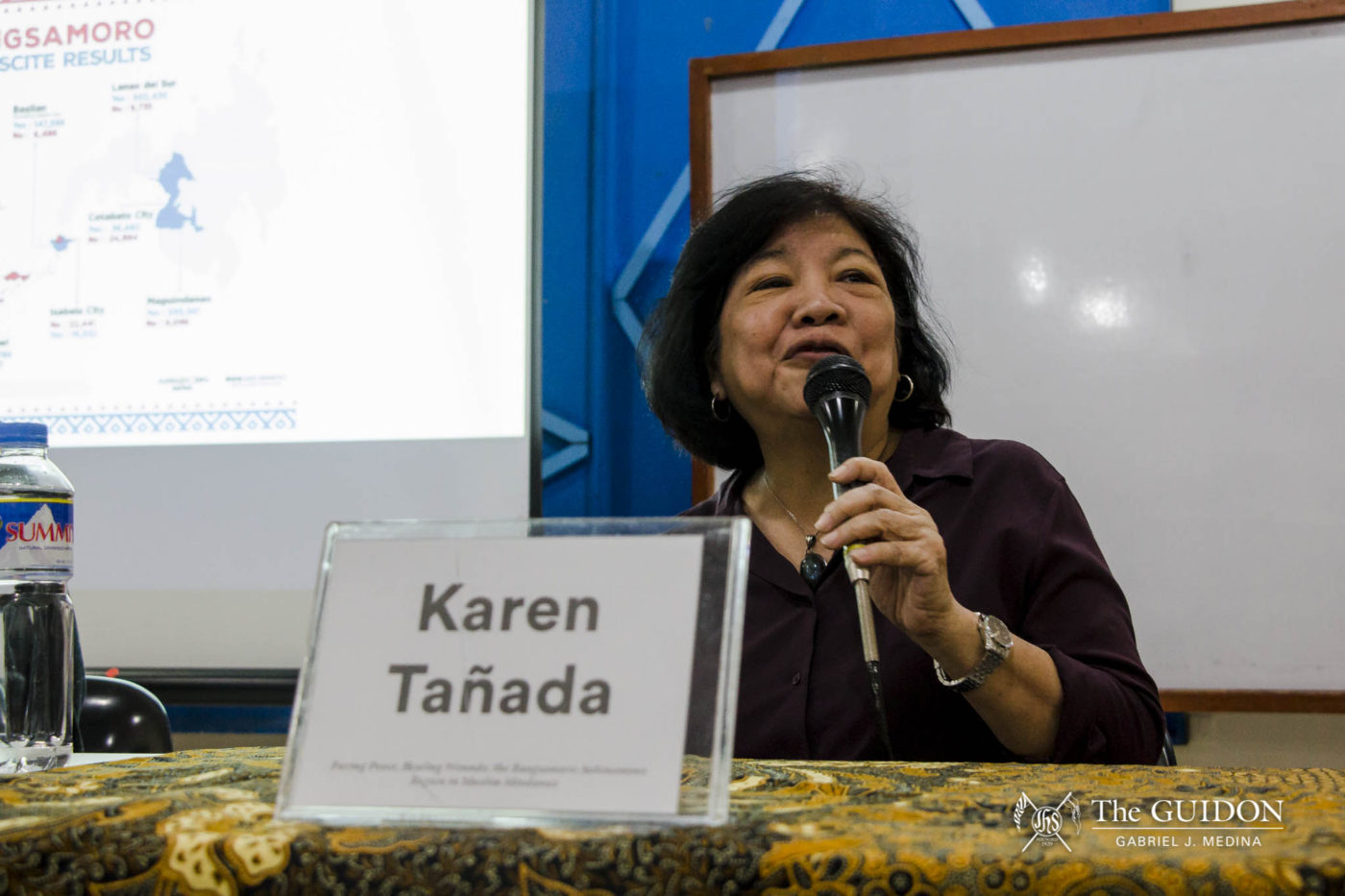To understand the challenges to peace in Mindanao after the implementation of the Bangsamoro Basic Law (BBL), Simbahang Lingkod ng Bayan facilitated a panel discussion entitled “Paving Peace, Healing Wounds” for the annual Talakayang Alay sa Bayan series held on October 8 at ISO Conference Rooms 5 and 6.
The two-hour discussion tackled the pressing issues that the Bangsamoro Autonomous Region in Muslim Mindanao (BARMM) continues to deal with. Residents from this region continue to bear wounds from their past as a result of their deeply-rooted history of discrimination and armed conflict.

Open wounds
The panel, composed of Transitional Justice and Reconciliation Commission (TJRC) Senior Gender Advisor Maria Lourdes Rallonza and the Gaston Z. Peace Institute Executive Editor Karen Tañada, said that these wounds have not been healed due to the difficulties in forging resolutions to intricate problems in relation to the religious and ethnic differences in the region.
Rallonza said that there must be platforms to acknowledge the traumatic experiences of the people, emphasizing the need to “remember narratives, no matter how gruesome” to ensure that violence in the region does not happen again.
Furthermore, she said that establishing peace is just one of the many challenges the Bangsamoro transitory government has to face as they are tasked to implement policies that address regional concerns such as budgeting, administration of justice, human rights, and social services.
More than legislation
BBL or Republic Act No. 11054 has been effective since August 10, 2018, allowing political autonomy for the BARMM. The creation of the BARMM secures the Bangsamoro people’s right to self-determination and autonomy as they are given exclusive powers in matters concerning budgeting, administration of justice, and human rights. Furthermore, the BBL provides a legal foundation for long-term peacebuilding and development.
However, Tañada explained that there are conflicts that “cannot simply be solved by legal tools” like the BBL. Because of this, she highlighted the importance of “rebuilding social relationships” and creating peacebuilding initiatives that last through the cooperation of both the Bangsamoro transitory government and civil society.
Students from the audience also engaged in the panel discussion and shared different ways for the youth to be actively involved. Recognizing various perspectives that could frame the Bangsamoro discussion, Sofia Guanzon (3 AB DipIR) said that the issue “should not [be] conflated nor simplified as a mere terrorism problem.”
Guanzon added that students must help raise proper awareness by first referring to reliable sources for more information about BARMM.







